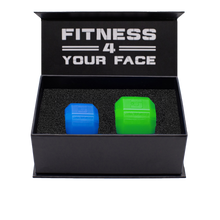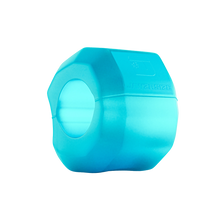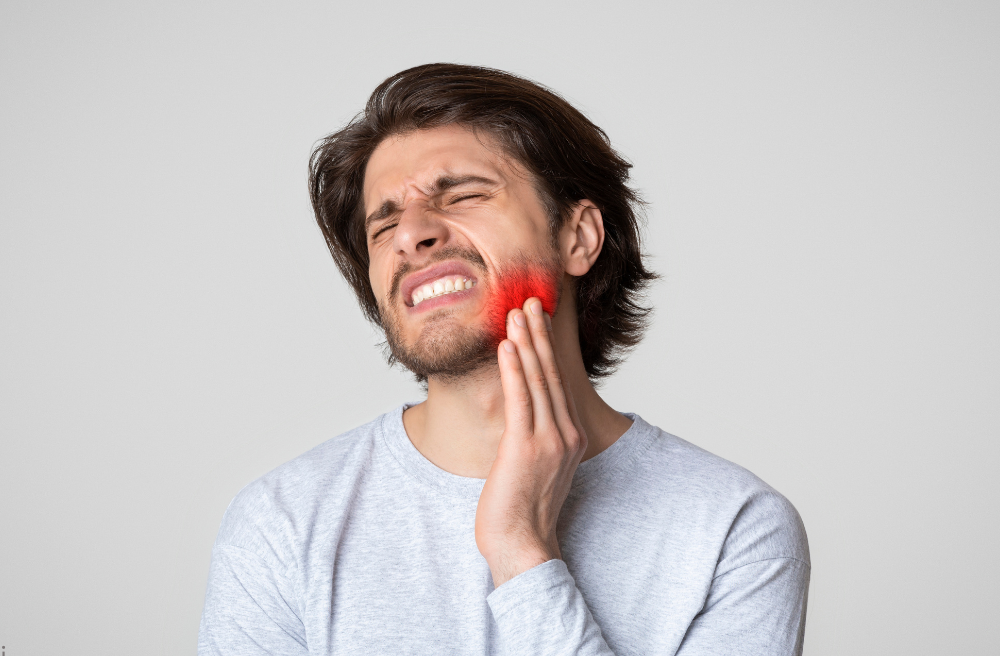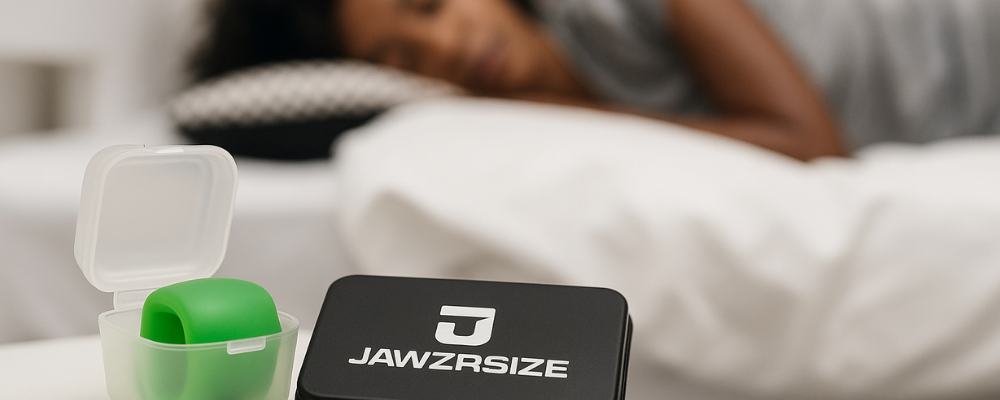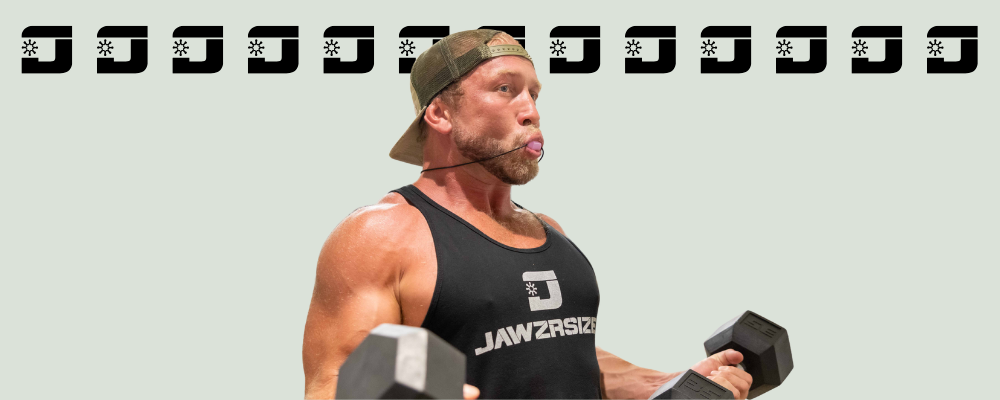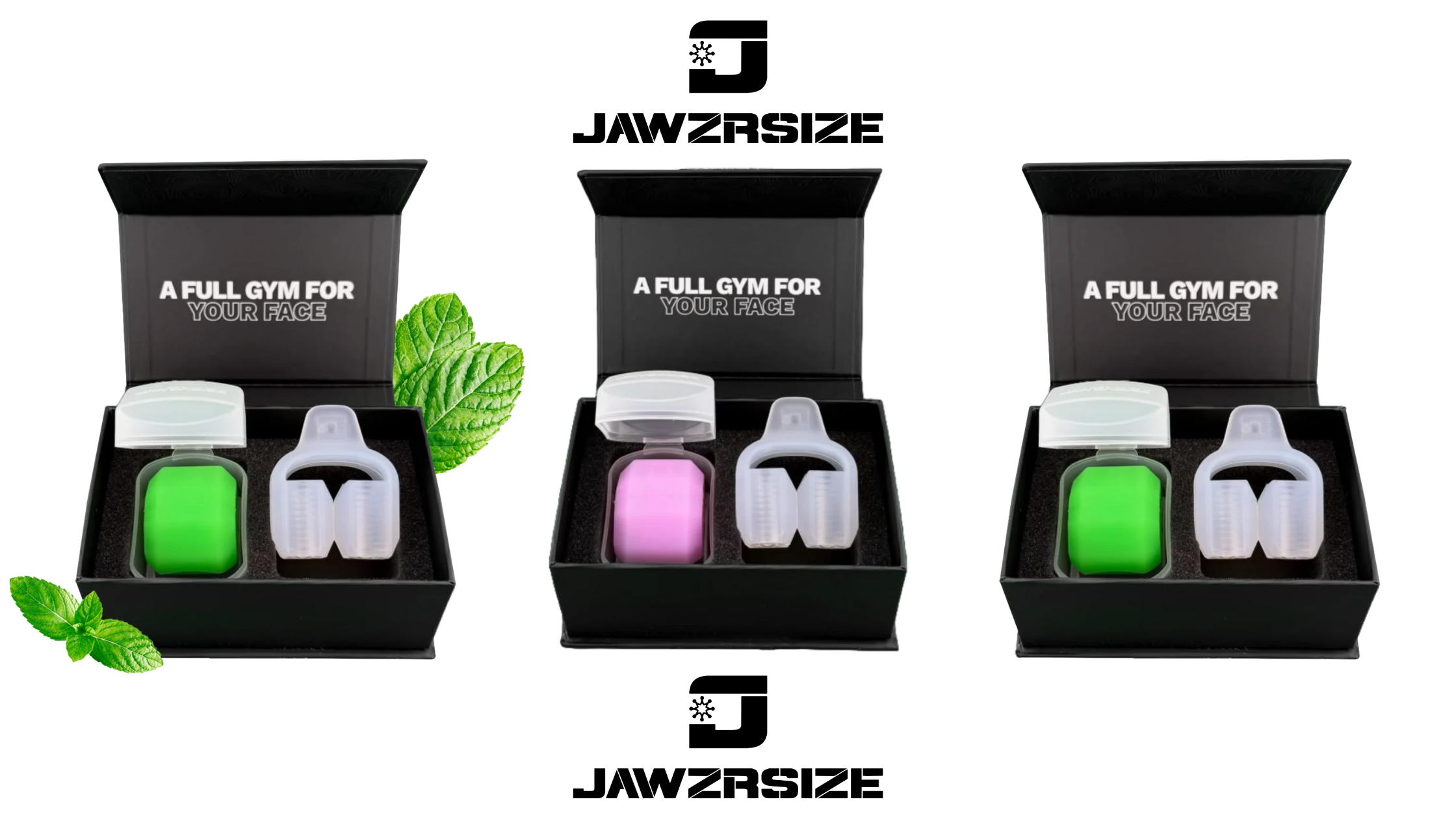Have you ever popped a piece of gum in your mouth, expecting a burst of flavor, only to find yourself wincing in pain? Jaw pain from chewing gum is more common than you might think. If it’s happening to you, it’s not something to ignore.
For years, I didn’t think much of it. Like many, I saw chewing gum as a harmless habit, even a way to freshen breath or satisfy a sweet craving. But as I delved deeper into facial anatomy and overall wellness, I began to see the connection between our everyday habits and long-term health.
That's when the jaw pain from chewing gum really clicked for me. It's actually a sign that something's off-balance. Maybe it’s how we're chewing, the type of gum we’re using, or even underlying conditions we’re unaware of. Fortunately, Jawzrsize offers a solution to help you manage and prevent this pain.
Why Does My Jaw Hurt from Chewing Gum?
Your jaw is a complex system of muscles and joints. And like any part of your body, it can get overworked and strained. Chewing gum for long periods or too often can overwork those jaw muscles, leading to soreness, pain, and even headaches.
The TMJ Connection
This soreness is often linked to your temporomandibular joint, known as the TMJ. It acts like a hinge, connecting your jawbone to your skull. Issues with this joint—often called TMJ disorder or TMD—can trigger a whole slew of discomforts: jaw pain, popping or clicking sounds when you open your mouth, and even earaches.
Other Culprits: From Stress to Your Posture
While gum might be the trigger, other factors can contribute to jaw pain from chewing gum. Stress often leads to jaw clenching or teeth grinding (bruxism), which puts extra pressure on your TMJ. Even poor posture can play a role. When your head juts forward, it strains your jaw and neck muscles.
Eight Ways to Find Relief From Jaw Pain from Chewing Gum
Here are several effective techniques to relieve jaw pain caused by chewing gum. If the pain is severe or chronic, it is crucial to consult with a healthcare professional to rule out any underlying conditions.
1. Give Your Jaw a Rest
- Seems obvious, right? Sometimes the best thing you can do is simply stop chewing gum for a while. This break lets your muscles relax and reduces inflammation, easing discomfort.
2. Jawzrsize
- Jawzrsize is a revolutionary facial fitness device designed to strengthen and tone the muscles in your jaw. By incorporating Jawzrsize into your routine, you can improve jaw alignment, enhance muscle balance, and potentially relieve TMJ pain. It’s a simple and effective way to keep your jaw muscles healthy and strong.
3. Chew Smarter, Not Harder (and Choose Sugar-Free)
- Cut back on how often and how long you chew gum. When you do chew, go for the sugar-free kind, and switch it up. Chewing on both sides of your mouth prevents muscle imbalances. And remember to chew gently. You're not trying to win a gum-chewing contest.
4. Treat Your Jaw to a Warm Compress
- A warm compress can work wonders for tense muscles. Apply it to your jaw for 10-15 minutes to increase blood flow and reduce stiffness.
5. Give Yourself a Jaw Massage
- Gentle massage isn't just for sore shoulders. Use your fingertips to make small, circular motions on your jaw muscles, releasing tension and promoting relaxation.
6. Incorporate Jaw Exercises into Your Routine
- Targeted exercises can strengthen your jaw and improve flexibility. Simple movements like opening your mouth wide, moving your jaw side-to-side, and chin tucks can make a big difference over time. Jawzrsize is an excellent tool to help incorporate these exercises effectively and efficiently.
7. Ditch Hard-to-Chew Foods (Temporarily)
- Your jaw already has enough on its plate (no pun intended) when dealing with pain from chewing gum. Give it a break from tough meats, crunchy veggies, and chewy candies until it feels better. Focus on softer, easier-to-chew foods that won’t aggravate those muscles.
8. Talk to a Healthcare Professional
- While these tips offer relief, persistent jaw pain from chewing gum warrants a visit to a doctor or dentist. They can determine the underlying cause, from muscle tension to TMJ issues, and recommend the best course of action.
Conclusion
Ignoring jaw pain from chewing gum could lead to more serious problems down the road. You don’t have to live with discomfort. By making some changes, incorporating simple exercises, and seeking professional advice, you can alleviate that pain and chew with confidence again. With Jawzrsize, you can strengthen your jaw muscles and prevent pain, ensuring long-term health and wellness.
Start Your Transformation with Jawzrsize
Ready to tone your facial muscles and achieve a more defined jawline? Join over 1 million people who have transformed their looks with Jawzrsize. Start your journey today and see visible results in just 30 days.

